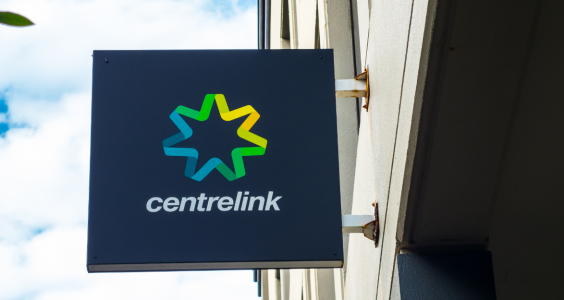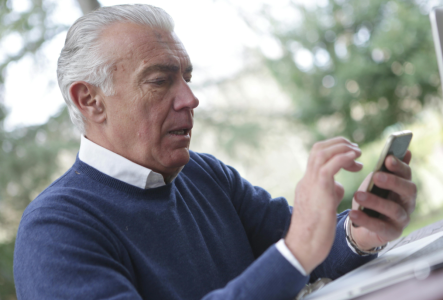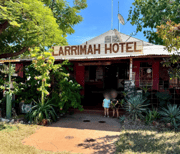Seniors brace for a hit as the freeze ends—what it could mean for your pension payments
Seniors are bracing for a potential hip-pocket hit as the long-standing freeze on pension deeming rates approaches its end. Originally set to expire on 1 July 2024, this freeze has buffered age pensioners and part-pensioners from interest rate surges in recent years. But with the deadline in sight, older Australians – especially those over 60 – are concerned about their finances and the rising cost of living.
The deeming rate freeze has been in place since the early days of the pandemic, ensuring pensioners weren’t penalised when interest rates were at rock-bottom. Now, amid a post-pandemic economy marked by higher interest rates and soaring prices, the government is poised to “thaw” the freeze.
Advocacy groups and seniors’ organisations warn this could squeeze retirees’ budgets at a time when everyday costs like groceries, energy, and healthcare are already biting hard. In this article, we’ll explain what deeming rates are, what changes are coming, who’s likely to be affected, and why it all matters.
Importantly, we’ll also hear what senior advocates and the government are saying about the issue. With pensions on the line, could this winter deliver another cold financial blow to older Australians? Let’s break it down.
In simple terms, deeming rates are an assumed rate of return that the government uses to calculate income from your financial assets. Rather than assess every dollar of actual interest or dividends you earn, Centrelink “deems” your assets to earn a set percentage, regardless of whether your investments are doing better or worse. These rules apply to financial assets like bank savings, term deposits, shares, and superannuation in account-based pensions.
Under the pension income test, this deemed income is added to any other earnings (like salary or rental income) to determine your Age Pension entitlement. In short, if the deeming rate goes up, Centrelink assumes you’re earning more from your nest egg – which could reduce your pension payments or even disqualify you from certain benefits. Conversely, a lower deeming rate deems less income, allowing pensioners to keep more of their pension (or qualify for one in the first place).
How it works: Currently, there are two deeming rates – a lower rate on a set amount of assets, and a higher rate for balances above that. As of now, singles have a 0.25% deeming rate on the first $60,400 of financial assets, and couples on the first $100,200 (these thresholds are slightly indexed over time). Any assets above those amounts are deemed at 2.25%. These rates are historically low, reflecting emergency cuts made in 2020.
For context, before the pandemic, deeming rates were higher – and many retirees complained they were being overestimated on income when bank interest was negligible. The government responded by slashing deeming rates to these record lows and freezing them there.
Why do deeming rates matter so much? Because thousands of pensioners rely on the Age Pension as a financial lifeline, and even a small change in deemed income can tip the balance of their payments.
Deeming also affects eligibility for the Commonwealth Seniors Health Card (CSHC) and even aged care fees. A rise in deeming rates effectively tightens the income test – meaning some part-pensioners could see their fortnightly pension reduced, and others might lose benefits like concession cards.
As one financial commentator put it, “if the deeming rate goes up, Centrelink assumes you’re earning more... which could reduce your pension or affect your concessions”.
Source: Services Australia / YouTube
Let’s rewind to how we got here. In May 2020, amid COVID-19’s economic shock, the federal government froze deeming rates at their current lows. At the time, Australia was grappling with a recession and near-zero interest rates. By fixing deeming at 0.25% / 2.25%, the government gave pensioners a “lifeline” – ensuring they weren’t unfairly penalised for collapsing interest rates. It meant Centrelink would continue assuming very minimal income from seniors’ savings, even if actual returns were dismal (which they were, with bank deposit rates under 1%).
This freeze was initially set for a limited period, but it got extended multiple times as economic uncertainty persisted. First slated to last until June 2022, it was rolled over again to 30 June 2024 amid continued cost-of-living pressures.
Then, in the 2024–25 federal budget, the government quietly extended the freeze for another year – to 30 June 2025. Each extension was welcomed by seniors, essentially acting as a stealth increase to their pensions. With deeming rates stuck at ultra-low levels while real interest rates climbed, many part-pensioners could earn more on their investments without it counting against their pension.
One retirement expert noted that if deeming had risen in line with market rates (say to around the Reserve Bank’s cash rate of ~4%), “they would have nearly doubled… meaning a lot more people… would now be deemed to earn more than the income limit and so they’d lose their pension entitlement”. In other words, the freeze likely kept tens of thousands of seniors on payments who might otherwise have fallen off.
It’s no wonder older Australians and advocacy groups fought hard to keep the freeze. Patricia Sparrow, Chief Executive of COTA Australia (Council on the Ageing), described the prospect of ending the freeze as a “sneaky attack on pensions”, estimating it “could leave a single age pensioner up to $3,300 a year worse off” if deeming jumped to reflect higher interest rates. She urged politicians not to “pile more pain” on seniors already struggling with high inflation, pointing out that the last pension indexation “wouldn’t even allow a pensioner to buy a coffee per week”. This colourful commentary underscores how critical the freeze has been to pensioners’ budgets.
Now the big question: what happens when the freeze finally thaws? As of mid-2024, the official line is that the freeze remains until June 2025 – but no further extension is guaranteed. The government confirmed the freeze will end on 30 June 2025 and made no mention of prolonging it in the latest budget.
Importantly, however, it’s not an automatic trigger. “The expiry of the deeming rates freeze does not mean the deeming rates will increase automatically… A decision of the Minister for Social Services is required,” a spokesperson for the government clarified. In other words, come the end date, the Minister must formally decide what the new deeming rates will be (if any change at all). They won’t simply snap to a new number overnight without political sign-off.
That said, all signals suggest a review is looming. Economic conditions have changed dramatically since 2020. The Reserve Bank’s cash rate, which sat at a mere 0.25% when the freeze began, has since soared to 4.10% at its peak, before a recent trim to 3.85%. Banks are offering savers interest rates not seen in over a decade – a term deposit can fetch around 4–5% nowadays.
There’s mounting pressure (including from within government ranks and opposition alike) for deeming rates to “catch up” to this new reality. Some argue it’s unfair for taxpayers to foot rising pension bills while retirees’ investments quietly yield more income than is being counted. Essentially, ending the freeze could save the budget money by reducing pension outlays – but at the cost of pensioners’ incomes.
When the freeze ends, the government has a few options. It could raise deeming rates immediately to reflect market rates, or opt for a phased approach – gradually increasing them to soften the impact.
In May 2024, as budget deliberations were underway, the Albanese government indicated it was considering phasing in a higher deeming rate for roughly 857,000 welfare recipients who are subject to the income test. Those recipients include age pensioners, disability pensioners, JobSeeker and others whose benefits might be trimmed if deemed income rises. A phased increase (for example, stepping the deeming rate up over several quarters) could blunt the shock and avoid a sudden $3,000+ annual loss for someone on a part-pension.
On the other hand, the government could choose to extend the freeze yet again if economic or political pressures warrant it. In April 2025, National Seniors Australia and COTA bluntly urged both sides of politics to “come clean on their plans for deeming rates”, implying that seniors deserved clarity before heading to the polls.
The advocacy groups warned that sneaking in a deeming hike after an election – when attention is elsewhere – would be “outrageous” and a betrayal of older voters. This suggests there is significant political incentive to handle this carefully. As of now, no one in Canberra has definitively said what they’ll do. Social Services Minister Tanya Plibersek, who oversees the policy, has maintained a cone of silence publicly, simply noting that any change will be “measured” and decided in due course.
For pensioners, this uncertainty is unsettling. Imagine trying to budget for next year when you don’t know if your pension might drop by $50 or $100 a fortnight. It’s a bit like waiting for the other shoe to drop – or for the “deeming axe” to fall. Older Australians are in limbo, as one commentator described, “left hanging as government signals deeming freeze to end”.
Part-Pensioners with Modest Savings
Seniors with Bank Deposits or Low-Risk Investments
Commonwealth Seniors Health Card Holders
Aged Care Residents
Who is less likely to be affected? Full rate pensioners with minimal assets won’t see any change – their situation is governed by the assets test instead (and if you have very few assets, you’re below both the income and assets test limits, so deeming isn’t a factor).
Also, wealthier retirees who don’t get any pension are technically unaffected by deeming changes directly (since they’re not on Centrelink), though they may care about deeming in case they become eligible in future or for the CSHC. However, many seniors in that group have other concerns like market volatility and inflation eroding their savings.
In summary, it’s the middle band of retirees – those not poor enough for a full pension, but not rich enough to be comfortable without one – who will feel the squeeze. They often have life savings in the bank or in conservative investments to generate a bit of income. Under the freeze, they’ve enjoyed a “deeming bonus” of sorts: actual interest rates went up but their pension wasn’t docked accordingly.
When that ends, their finances take a hit. One estimate suggested a part-pensioner couple with around $350,000 in assets could lose nearly $150 a fortnight if deeming rates adjusted to current interest levels. That is real money when you’re living on a fixed income.
National Seniors reports that the top three cost concerns for seniors are health, energy, and groceries. Indeed, electricity prices jumped by 10-15% or more in many regions last year, prompting the government to offer energy rebates ($250–$500 in relief in many states).
Groceries are noticeably pricier – meat, dairy, fruits and veggies, you name it – and seniors often have special dietary or health needs that make cutting corners hard. Petrol costs remain elevated, and many pensioners still drive (especially in regional areas) or rely on transport services that pass on fuel costs. Insurance premiums are up, council rates keep rising, and even a beer at the pub or a cup of coffee has climbed in price.
For those renting, it’s even more dire: rents have surged in many cities, which is why the government’s budget also included a 10% increase to Commonwealth Rent Assistance. That equates to an extra ~$18 a fortnight for eligible renters – helpful, but not game-changing when rents might have risen by $50 or $100 a week in some cases.
And while the Age Pension itself is indexed twice a year to inflation, those adjustments sometimes feel like throwing a cup of water on a house fire. As COTA’s Patricia Sparrow quipped, the March indexation “wouldn’t even buy a coffee a week” given the pace of price rises. Pensioners are already struggling to make ends meet, often sacrificing basics. Many report cutting back on meat, turning off the heater despite winter cold, postponing dentist visits, and so on – all to stay within budget.
This context is crucial: any reduction in pension income due to deeming changes would land on top of an already heavy burden. “Older Australians are struggling to pay competing necessities such as utilities, petrol, groceries, insurances, and rent,” National Seniors’ Chris Grice emphasizes. A drop in pension payments, he notes, would come “on top of what they’re currently trying to cope with,” which he calls “unreasonable at best”. It’s akin to a one-two punch: high living costs shrinking what the pension can buy, and now potentially a smaller pension as well.
On the other hand, some commentators argue that many part-pensioners have actually gained a lot from rising interest rates – if they moved their money into higher yielding deposits or bonds. Those retirees might be earning a few thousand dollars more in interest per year now compared to 2020. From that perspective, one could say “well, at least they have that extra income to offset a pension reduction.”
But not everyone was in a position to seize those higher rates. Seniors are often cautious with investments; some stayed in cash accounts that didn’t keep up. And even for those who did see better returns, much of that is being eaten by inflation (earning 4% interest doesn’t feel great when inflation is 6%, effectively you’re still going backwards in real terms).
All said, the cost-of-living squeeze is real for seniors. This is why there is intense pressure on the government to handle deeming carefully – now is seen as the worst possible time to claw back pension dollars.
In a rare show of unity, NSA and COTA jointly called for a continued freeze while “pensioners and others are battling the current cost-of-living crisis”. Patricia Sparrow (COTA) described ending the freeze now as a huge hit to older Australians’ ability to make ends meet. She highlighted how essential it is for political leaders to be upfront: “Older Australians… deserve to know what our political parties have in store for them”, rather than springing a nasty surprise after an election. Both she and Chris Grice (NSA) warn that a more than $3,000 annual loss on top of existing pressures is “unreasonable at best”. Their message is clear: don’t balance the budget on the backs of seniors.
National Seniors has been running a campaign on this issue, even providing a “deeming rate change estimator” to show people how much pension they could lose under various scenarios. It’s a wake-up call: some could lose a few dollars a fortnight, but others could lose hundreds.
NSA’s Chris Grice pointed out that about 450,000 age pensioners (mostly part-pensioners) are affected by the freeze. If it ends, those folks risk losing not just income but also benefits like the Seniors Health Card, which many deeply value for concessions. He praised the 2024 Budget’s extension as a “sensible way to help older people meet daily living costs”, calling it part of a “trifecta” of cost-of-living measures (alongside energy bill relief and rent assistance) that the government delivered for seniors.
Source: National Seniors Australia / YouTube
However, advocacy groups aren’t resting easy. They are pushing for structural changes to avoid this recurring brinkmanship. NSA is calling for a “fair and transparent way to set [deeming] rates in the future”. In other words, don’t leave it to political whim each year – establish a formula or rule that everyone can plan around. For instance, deeming rates could be indexed to the RBA cash rate or average term deposit rates, with adjustments only when there’s a significant gap. This would prevent situations where deeming lags far behind or jumps unpredictably. As NSA put it, “we need to ensure any changes to deeming rates are measured, incremental, and transparent in calculation” so that older Australians aren’t suddenly caught off guard by policy changes.
There are also broader ideas on the table. National Seniors has floated the idea of reforming the income test entirely – suggesting that instead of complicated rules like the Work Bonus (which lets pensioners earn $300 a fortnight from work without penalty) and deeming, perhaps retirees could be allowed to earn or draw income freely and simply pay tax on it. This would effectively treat pensioners’ extra income more like how income is treated for those of working age – get rid of the Centrelink disincentives and just tax it normally. It’s a bold idea that would require a major overhaul, but it shows the appetite for simplifying the system.
Another suggestion has been to index the asset and income test thresholds more generously (they are indexed to inflation, but perhaps wages or a higher benchmark could be considered) so that the pension keeps up with living standards and doesn’t shut out people it shouldn’t. Critics of the current system point out that someone who saved diligently and ended up just over the asset limit gets no pension at all, yet might only have a modest retirement income from those assets – whereas someone who spent down their savings can get the pension and concessions. It’s a perennial debate: how to reward saving without making people worse off for having saved. The deeming saga is a part of that bigger conversation.
From the government’s side, the narrative is about targeting support to those who need it most while managing the budget. Social Services Minister Plibersek (and her predecessor Amanda Rishworth) often emphasize that means testing ensures the pension system is sustainable. They contend that keeping deeming realistic is part of that – if interest rates are higher, people can earn more on their investments, so it’s fair to dial deeming up accordingly. Yet, ministers also reassure that they understand seniors’ concerns.
The government’s decision to extend the freeze to 2025 was explicitly framed as part of a cost-of-living relief package for seniors. It shows that advocacy can have an impact. Now, seniors’ groups are ramping up pressure to ensure any post-June 2025 changes won’t be too harsh. We might see some creative compromise – maybe a small increase in deeming rates (e.g., lift the lower rate from 0.25% to 1% and upper from 2.25% to 3% as a first step) that still assumes less than actual market rates, thereby softening the blow. There’s precedent for governments splitting the difference like that.
The government’s challenge is to balance fiscal responsibility with social responsibility. Yes, there’s money to be saved by tweaking deeming (Treasury no doubt has estimates of how much an increase would cut from pension expenditures). But there’s also a human cost. Pensioners are not a group with lavish lifestyles or fat margins in their budgets. Every dollar matters, and dignity in retirement is at stake. As advocates argue, these are people who largely did the right thing – saved some money, paid off homes, contributed through taxes – and they deserve security, not surprises.
We should also note that deeming rates don’t only affect seniors. They also apply to other payments like disability pensions, JobSeeker, and some family payments. So this is a broader welfare issue. Younger people on income support with some savings (or compensation payouts invested, etc.) could likewise see their payments drop if deeming rises. Though the age pensioners are by far the largest group impacted, the narrative of “fairness” and “not pulling the rug out” really spans multiple cohorts.
In the coming months, expect to hear more about this in the news. There might be parliamentary committee inquiries, economists weighing in with suggestions, and political sparring. For now, pensioners have a temporary reprieve until 30 June 2025. The extra year bought by the freeze extension is an opportunity – hopefully used to devise a better approach.
As NSA’s Chris Grice said, “We hope the government uses this time to create a fair and transparent way to set rates in the future”. That could mean setting up an independent body to recommend deeming rates (similar to how the Fair Work Commission sets minimum wage, for example), or a formula tied to interest indices.
It’s also worth keeping an eye on interest rate trends. Interestingly, by mid-2025 the Reserve Bank might start cutting rates if inflation is under control. In fact, some forecasts suggest that by late 2024 or 2025, the cash rate might fall from its peak. If that happens, the pressure to raise deeming could lessen – or we might find ourselves in the opposite debate: should deeming be cut to match falling interest? This volatility is exactly why many are calling for deeming reform, so that pensioners aren’t left guessing and lobbying every year.
As winter arrives, seniors face an uncertain financial future. The end of the deeming rate freeze hangs like a Sword of Damocles over many retirees’ budgets. This article has unpacked the what, why, and who of the issue – from explaining the arcane deeming rules to amplifying seniors’ pleas for fairness. It’s clear that whatever happens with deeming rates will have real consequences: for some, it could shave dollars off weekly grocery money; for others, it might mean losing a cherished concession card or paying more for aged care.
The government and advocacy groups seem to agree on one thing: any change must be handled with care. No one in power is eager to be seen as hurting pensioners; after all, older Australians are a powerful voting bloc with long memories. The broader community, too, has a stake in how we treat our elders. As cost-of-living pressures persist, the pension becomes ever more critical in preventing senior Australians from sliding into poverty.
In the meantime, what can seniors do? Staying informed is key – know your assets, understand how deeming impacts you, and keep an eye on announcements. Some financial advisors suggest having a plan B: if you’re close to a threshold, perhaps structure assets in a way that minimises deemed income (though options are limited and one should seek advice).
Engaging with advocacy groups and even voicing your concerns to politicians can also make a difference. The more noise on this issue, the harder it is for decision-makers to ignore.
At its heart, this is about ensuring that seniors get a “fair go” – not only in one-off decisions like a freeze, but in the very design of the pension system. Should retirees be penalised for having a bit of savings? Are we indexing and benchmarking the pension in a way that truly reflects living costs? These are big-picture questions that Australia will need to confront as our population ages.
As we wrap up, one can’t help but reflect on a basic question: how should a fair society treat its older citizens in their golden years? When it comes to deeming rates, the question might be even more pointed: Is it right to assume pensioners are earning more “on paper” and dock their entitlements, when in reality so many are barely scraping by? The freeze on deeming rates was a recognition that extraordinary times called for leniency. As those times pass, we now face a test of our collective values.
Thought to ponder: Will the end of the deeming rate freeze be managed in a way that protects vulnerable seniors, or will it become a litmus test for Australia’s commitment to its older citizens’ dignity and security? In a nation as prosperous as ours, perhaps the real question is – how much is saving a few budget dollars worth when weighed against the wellbeing of those who built the country we enjoy today?
The deeming rate freeze has been in place since the early days of the pandemic, ensuring pensioners weren’t penalised when interest rates were at rock-bottom. Now, amid a post-pandemic economy marked by higher interest rates and soaring prices, the government is poised to “thaw” the freeze.
Advocacy groups and seniors’ organisations warn this could squeeze retirees’ budgets at a time when everyday costs like groceries, energy, and healthcare are already biting hard. In this article, we’ll explain what deeming rates are, what changes are coming, who’s likely to be affected, and why it all matters.
Importantly, we’ll also hear what senior advocates and the government are saying about the issue. With pensions on the line, could this winter deliver another cold financial blow to older Australians? Let’s break it down.
What Are Deeming Rates and Why Do They Matter?
In simple terms, deeming rates are an assumed rate of return that the government uses to calculate income from your financial assets. Rather than assess every dollar of actual interest or dividends you earn, Centrelink “deems” your assets to earn a set percentage, regardless of whether your investments are doing better or worse. These rules apply to financial assets like bank savings, term deposits, shares, and superannuation in account-based pensions.
Under the pension income test, this deemed income is added to any other earnings (like salary or rental income) to determine your Age Pension entitlement. In short, if the deeming rate goes up, Centrelink assumes you’re earning more from your nest egg – which could reduce your pension payments or even disqualify you from certain benefits. Conversely, a lower deeming rate deems less income, allowing pensioners to keep more of their pension (or qualify for one in the first place).
How it works: Currently, there are two deeming rates – a lower rate on a set amount of assets, and a higher rate for balances above that. As of now, singles have a 0.25% deeming rate on the first $60,400 of financial assets, and couples on the first $100,200 (these thresholds are slightly indexed over time). Any assets above those amounts are deemed at 2.25%. These rates are historically low, reflecting emergency cuts made in 2020.
For context, before the pandemic, deeming rates were higher – and many retirees complained they were being overestimated on income when bank interest was negligible. The government responded by slashing deeming rates to these record lows and freezing them there.
Why do deeming rates matter so much? Because thousands of pensioners rely on the Age Pension as a financial lifeline, and even a small change in deemed income can tip the balance of their payments.
Deeming also affects eligibility for the Commonwealth Seniors Health Card (CSHC) and even aged care fees. A rise in deeming rates effectively tightens the income test – meaning some part-pensioners could see their fortnightly pension reduced, and others might lose benefits like concession cards.
As one financial commentator put it, “if the deeming rate goes up, Centrelink assumes you’re earning more... which could reduce your pension or affect your concessions”.
Source: Services Australia / YouTube
The Freeze: Why Deeming Rates Were Frozen
Let’s rewind to how we got here. In May 2020, amid COVID-19’s economic shock, the federal government froze deeming rates at their current lows. At the time, Australia was grappling with a recession and near-zero interest rates. By fixing deeming at 0.25% / 2.25%, the government gave pensioners a “lifeline” – ensuring they weren’t unfairly penalised for collapsing interest rates. It meant Centrelink would continue assuming very minimal income from seniors’ savings, even if actual returns were dismal (which they were, with bank deposit rates under 1%).
This freeze was initially set for a limited period, but it got extended multiple times as economic uncertainty persisted. First slated to last until June 2022, it was rolled over again to 30 June 2024 amid continued cost-of-living pressures.
Then, in the 2024–25 federal budget, the government quietly extended the freeze for another year – to 30 June 2025. Each extension was welcomed by seniors, essentially acting as a stealth increase to their pensions. With deeming rates stuck at ultra-low levels while real interest rates climbed, many part-pensioners could earn more on their investments without it counting against their pension.
One retirement expert noted that if deeming had risen in line with market rates (say to around the Reserve Bank’s cash rate of ~4%), “they would have nearly doubled… meaning a lot more people… would now be deemed to earn more than the income limit and so they’d lose their pension entitlement”. In other words, the freeze likely kept tens of thousands of seniors on payments who might otherwise have fallen off.
It’s no wonder older Australians and advocacy groups fought hard to keep the freeze. Patricia Sparrow, Chief Executive of COTA Australia (Council on the Ageing), described the prospect of ending the freeze as a “sneaky attack on pensions”, estimating it “could leave a single age pensioner up to $3,300 a year worse off” if deeming jumped to reflect higher interest rates. She urged politicians not to “pile more pain” on seniors already struggling with high inflation, pointing out that the last pension indexation “wouldn’t even allow a pensioner to buy a coffee per week”. This colourful commentary underscores how critical the freeze has been to pensioners’ budgets.
What Happens When the Freeze Ends?
Now the big question: what happens when the freeze finally thaws? As of mid-2024, the official line is that the freeze remains until June 2025 – but no further extension is guaranteed. The government confirmed the freeze will end on 30 June 2025 and made no mention of prolonging it in the latest budget.
Importantly, however, it’s not an automatic trigger. “The expiry of the deeming rates freeze does not mean the deeming rates will increase automatically… A decision of the Minister for Social Services is required,” a spokesperson for the government clarified. In other words, come the end date, the Minister must formally decide what the new deeming rates will be (if any change at all). They won’t simply snap to a new number overnight without political sign-off.
That said, all signals suggest a review is looming. Economic conditions have changed dramatically since 2020. The Reserve Bank’s cash rate, which sat at a mere 0.25% when the freeze began, has since soared to 4.10% at its peak, before a recent trim to 3.85%. Banks are offering savers interest rates not seen in over a decade – a term deposit can fetch around 4–5% nowadays.
There’s mounting pressure (including from within government ranks and opposition alike) for deeming rates to “catch up” to this new reality. Some argue it’s unfair for taxpayers to foot rising pension bills while retirees’ investments quietly yield more income than is being counted. Essentially, ending the freeze could save the budget money by reducing pension outlays – but at the cost of pensioners’ incomes.
When the freeze ends, the government has a few options. It could raise deeming rates immediately to reflect market rates, or opt for a phased approach – gradually increasing them to soften the impact.
In May 2024, as budget deliberations were underway, the Albanese government indicated it was considering phasing in a higher deeming rate for roughly 857,000 welfare recipients who are subject to the income test. Those recipients include age pensioners, disability pensioners, JobSeeker and others whose benefits might be trimmed if deemed income rises. A phased increase (for example, stepping the deeming rate up over several quarters) could blunt the shock and avoid a sudden $3,000+ annual loss for someone on a part-pension.
On the other hand, the government could choose to extend the freeze yet again if economic or political pressures warrant it. In April 2025, National Seniors Australia and COTA bluntly urged both sides of politics to “come clean on their plans for deeming rates”, implying that seniors deserved clarity before heading to the polls.
The advocacy groups warned that sneaking in a deeming hike after an election – when attention is elsewhere – would be “outrageous” and a betrayal of older voters. This suggests there is significant political incentive to handle this carefully. As of now, no one in Canberra has definitively said what they’ll do. Social Services Minister Tanya Plibersek, who oversees the policy, has maintained a cone of silence publicly, simply noting that any change will be “measured” and decided in due course.
For pensioners, this uncertainty is unsettling. Imagine trying to budget for next year when you don’t know if your pension might drop by $50 or $100 a fortnight. It’s a bit like waiting for the other shoe to drop – or for the “deeming axe” to fall. Older Australians are in limbo, as one commentator described, “left hanging as government signals deeming freeze to end”.
Who Will Feel the Pinch? Winners and Losers of a Rate Rise
Not every senior will be affected by a deeming rate increase – but hundreds of thousands likely will. Let’s break down who’s most at risk:Part-Pensioners with Modest Savings
If you’re on a part pension because you have some financial assets, you’re exactly the group for whom deeming matters most. Many of the roughly 450,000 age pensioners benefiting from the current freeze fall in this category. For example, a single pensioner homeowner with $300,000 in savings/investments currently has much of that deemed at 0.25% and the rest at 2.25%. If deeming rates were to double (closer to 0.5% and 5% perhaps), their deemed income could jump by several thousand dollars a year – potentially cutting their pension by a similar amount. National Seniors’ analysis found that more than 460,000 pensioners could lose income and key concessions if the freeze were lifted back in 2022. Those losses would likely be even larger now, given higher interest rates.
Seniors with Bank Deposits or Low-Risk Investments
Deeming assumes you earn a certain rate whether or not you actually do. Interestingly, in today’s climate many cautious retirees still keep money in low-interest accounts or legacy term deposits that might be below current deeming rates. As COTA and National Seniors point out, “not all pensioners have been able to take advantage of higher returns, especially those with money locked in low-interest accounts or who are wary of riskier investments”. These individuals could be hurt by deeming rises even if their real income hasn’t increased – a double whammy of no extra interest yet lower pension because Centrelink will pretend they earned more.
Commonwealth Seniors Health Card Holders
The CSHC is a valuable concession card for self-funded retirees who don’t qualify for the pension (usually because of assets/income just above the pension cut-off). It has an income test (currently around $95,400 for a couple) which also uses deeming for investment income. If deeming rates jump, some near the threshold could lose the card and benefits like discounted medicines, rates, and energy bills. As National Seniors’ CEO Chris Grice warned, ending the freeze would “spare part-pensioners and other income support recipients a drop in income and the loss of the Commonwealth Seniors Health Card and with it, access to valuable concessions”. In other words, a deeming change could ripple beyond just the pension itself.
Aged Care Residents
For seniors in residential aged care, fees are partly based on a means-tested amount that includes deemed income from assets. Higher deeming could mean higher care fees for those residents as well, raising the cost of nursing home accommodation and care.
Who is less likely to be affected? Full rate pensioners with minimal assets won’t see any change – their situation is governed by the assets test instead (and if you have very few assets, you’re below both the income and assets test limits, so deeming isn’t a factor).
Also, wealthier retirees who don’t get any pension are technically unaffected by deeming changes directly (since they’re not on Centrelink), though they may care about deeming in case they become eligible in future or for the CSHC. However, many seniors in that group have other concerns like market volatility and inflation eroding their savings.
In summary, it’s the middle band of retirees – those not poor enough for a full pension, but not rich enough to be comfortable without one – who will feel the squeeze. They often have life savings in the bank or in conservative investments to generate a bit of income. Under the freeze, they’ve enjoyed a “deeming bonus” of sorts: actual interest rates went up but their pension wasn’t docked accordingly.
When that ends, their finances take a hit. One estimate suggested a part-pensioner couple with around $350,000 in assets could lose nearly $150 a fortnight if deeming rates adjusted to current interest levels. That is real money when you’re living on a fixed income.
Cost of Living Crunch: Groceries, Power, and Healthcare
All this is unfolding against a backdrop of steep cost-of-living increases that have especially hurt seniors on fixed incomes. While the headline inflation rate in Australia was around 7% at its peak and has eased to about 5-6%, the prices of essentials have skyrocketed in the past two years. Older Australians are feeling it at the supermarket checkout and in their utility bills.National Seniors reports that the top three cost concerns for seniors are health, energy, and groceries. Indeed, electricity prices jumped by 10-15% or more in many regions last year, prompting the government to offer energy rebates ($250–$500 in relief in many states).
Groceries are noticeably pricier – meat, dairy, fruits and veggies, you name it – and seniors often have special dietary or health needs that make cutting corners hard. Petrol costs remain elevated, and many pensioners still drive (especially in regional areas) or rely on transport services that pass on fuel costs. Insurance premiums are up, council rates keep rising, and even a beer at the pub or a cup of coffee has climbed in price.
For those renting, it’s even more dire: rents have surged in many cities, which is why the government’s budget also included a 10% increase to Commonwealth Rent Assistance. That equates to an extra ~$18 a fortnight for eligible renters – helpful, but not game-changing when rents might have risen by $50 or $100 a week in some cases.
And while the Age Pension itself is indexed twice a year to inflation, those adjustments sometimes feel like throwing a cup of water on a house fire. As COTA’s Patricia Sparrow quipped, the March indexation “wouldn’t even buy a coffee a week” given the pace of price rises. Pensioners are already struggling to make ends meet, often sacrificing basics. Many report cutting back on meat, turning off the heater despite winter cold, postponing dentist visits, and so on – all to stay within budget.
This context is crucial: any reduction in pension income due to deeming changes would land on top of an already heavy burden. “Older Australians are struggling to pay competing necessities such as utilities, petrol, groceries, insurances, and rent,” National Seniors’ Chris Grice emphasizes. A drop in pension payments, he notes, would come “on top of what they’re currently trying to cope with,” which he calls “unreasonable at best”. It’s akin to a one-two punch: high living costs shrinking what the pension can buy, and now potentially a smaller pension as well.
On the other hand, some commentators argue that many part-pensioners have actually gained a lot from rising interest rates – if they moved their money into higher yielding deposits or bonds. Those retirees might be earning a few thousand dollars more in interest per year now compared to 2020. From that perspective, one could say “well, at least they have that extra income to offset a pension reduction.”
But not everyone was in a position to seize those higher rates. Seniors are often cautious with investments; some stayed in cash accounts that didn’t keep up. And even for those who did see better returns, much of that is being eaten by inflation (earning 4% interest doesn’t feel great when inflation is 6%, effectively you’re still going backwards in real terms).
All said, the cost-of-living squeeze is real for seniors. This is why there is intense pressure on the government to handle deeming carefully – now is seen as the worst possible time to claw back pension dollars.
Advocacy Groups: “Don’t Punish Pensioners”
Senior advocacy organisations are not mincing words over this issue. National Seniors Australia (NSA) and COTA Australia have been front and centre, campaigning to protect older Australians’ incomes. Their stance: extend the freeze or, at the very least, raise deeming rates only gradually and fairly. They argue that pensioners should not be the collateral damage of economic policy shifts, especially after contributing to society all their lives.In a rare show of unity, NSA and COTA jointly called for a continued freeze while “pensioners and others are battling the current cost-of-living crisis”. Patricia Sparrow (COTA) described ending the freeze now as a huge hit to older Australians’ ability to make ends meet. She highlighted how essential it is for political leaders to be upfront: “Older Australians… deserve to know what our political parties have in store for them”, rather than springing a nasty surprise after an election. Both she and Chris Grice (NSA) warn that a more than $3,000 annual loss on top of existing pressures is “unreasonable at best”. Their message is clear: don’t balance the budget on the backs of seniors.
National Seniors has been running a campaign on this issue, even providing a “deeming rate change estimator” to show people how much pension they could lose under various scenarios. It’s a wake-up call: some could lose a few dollars a fortnight, but others could lose hundreds.
NSA’s Chris Grice pointed out that about 450,000 age pensioners (mostly part-pensioners) are affected by the freeze. If it ends, those folks risk losing not just income but also benefits like the Seniors Health Card, which many deeply value for concessions. He praised the 2024 Budget’s extension as a “sensible way to help older people meet daily living costs”, calling it part of a “trifecta” of cost-of-living measures (alongside energy bill relief and rent assistance) that the government delivered for seniors.
Source: National Seniors Australia / YouTube
However, advocacy groups aren’t resting easy. They are pushing for structural changes to avoid this recurring brinkmanship. NSA is calling for a “fair and transparent way to set [deeming] rates in the future”. In other words, don’t leave it to political whim each year – establish a formula or rule that everyone can plan around. For instance, deeming rates could be indexed to the RBA cash rate or average term deposit rates, with adjustments only when there’s a significant gap. This would prevent situations where deeming lags far behind or jumps unpredictably. As NSA put it, “we need to ensure any changes to deeming rates are measured, incremental, and transparent in calculation” so that older Australians aren’t suddenly caught off guard by policy changes.
There are also broader ideas on the table. National Seniors has floated the idea of reforming the income test entirely – suggesting that instead of complicated rules like the Work Bonus (which lets pensioners earn $300 a fortnight from work without penalty) and deeming, perhaps retirees could be allowed to earn or draw income freely and simply pay tax on it. This would effectively treat pensioners’ extra income more like how income is treated for those of working age – get rid of the Centrelink disincentives and just tax it normally. It’s a bold idea that would require a major overhaul, but it shows the appetite for simplifying the system.
Another suggestion has been to index the asset and income test thresholds more generously (they are indexed to inflation, but perhaps wages or a higher benchmark could be considered) so that the pension keeps up with living standards and doesn’t shut out people it shouldn’t. Critics of the current system point out that someone who saved diligently and ended up just over the asset limit gets no pension at all, yet might only have a modest retirement income from those assets – whereas someone who spent down their savings can get the pension and concessions. It’s a perennial debate: how to reward saving without making people worse off for having saved. The deeming saga is a part of that bigger conversation.
From the government’s side, the narrative is about targeting support to those who need it most while managing the budget. Social Services Minister Plibersek (and her predecessor Amanda Rishworth) often emphasize that means testing ensures the pension system is sustainable. They contend that keeping deeming realistic is part of that – if interest rates are higher, people can earn more on their investments, so it’s fair to dial deeming up accordingly. Yet, ministers also reassure that they understand seniors’ concerns.
The government’s decision to extend the freeze to 2025 was explicitly framed as part of a cost-of-living relief package for seniors. It shows that advocacy can have an impact. Now, seniors’ groups are ramping up pressure to ensure any post-June 2025 changes won’t be too harsh. We might see some creative compromise – maybe a small increase in deeming rates (e.g., lift the lower rate from 0.25% to 1% and upper from 2.25% to 3% as a first step) that still assumes less than actual market rates, thereby softening the blow. There’s precedent for governments splitting the difference like that.
What’s Next: Unfreezing with Care, or a Pension Revamp?
As the deadline draws nearer, age pensioners across Australia are watching closely. Many have already reached out to their local MPs or written letters to editors expressing worry and urging compassion. “It’s not right to change the rules on us now,” one 70-year-old part-pensioner told a community forum, “when everything else – food, bills, petrol – is going up.” The sentiment on talkback radio and senior citizens’ clubs is much the same: find a fair way forward.The government’s challenge is to balance fiscal responsibility with social responsibility. Yes, there’s money to be saved by tweaking deeming (Treasury no doubt has estimates of how much an increase would cut from pension expenditures). But there’s also a human cost. Pensioners are not a group with lavish lifestyles or fat margins in their budgets. Every dollar matters, and dignity in retirement is at stake. As advocates argue, these are people who largely did the right thing – saved some money, paid off homes, contributed through taxes – and they deserve security, not surprises.
We should also note that deeming rates don’t only affect seniors. They also apply to other payments like disability pensions, JobSeeker, and some family payments. So this is a broader welfare issue. Younger people on income support with some savings (or compensation payouts invested, etc.) could likewise see their payments drop if deeming rises. Though the age pensioners are by far the largest group impacted, the narrative of “fairness” and “not pulling the rug out” really spans multiple cohorts.
In the coming months, expect to hear more about this in the news. There might be parliamentary committee inquiries, economists weighing in with suggestions, and political sparring. For now, pensioners have a temporary reprieve until 30 June 2025. The extra year bought by the freeze extension is an opportunity – hopefully used to devise a better approach.
As NSA’s Chris Grice said, “We hope the government uses this time to create a fair and transparent way to set rates in the future”. That could mean setting up an independent body to recommend deeming rates (similar to how the Fair Work Commission sets minimum wage, for example), or a formula tied to interest indices.
It’s also worth keeping an eye on interest rate trends. Interestingly, by mid-2025 the Reserve Bank might start cutting rates if inflation is under control. In fact, some forecasts suggest that by late 2024 or 2025, the cash rate might fall from its peak. If that happens, the pressure to raise deeming could lessen – or we might find ourselves in the opposite debate: should deeming be cut to match falling interest? This volatility is exactly why many are calling for deeming reform, so that pensioners aren’t left guessing and lobbying every year.
A Fair Go for Older Australians?
As winter arrives, seniors face an uncertain financial future. The end of the deeming rate freeze hangs like a Sword of Damocles over many retirees’ budgets. This article has unpacked the what, why, and who of the issue – from explaining the arcane deeming rules to amplifying seniors’ pleas for fairness. It’s clear that whatever happens with deeming rates will have real consequences: for some, it could shave dollars off weekly grocery money; for others, it might mean losing a cherished concession card or paying more for aged care.
The government and advocacy groups seem to agree on one thing: any change must be handled with care. No one in power is eager to be seen as hurting pensioners; after all, older Australians are a powerful voting bloc with long memories. The broader community, too, has a stake in how we treat our elders. As cost-of-living pressures persist, the pension becomes ever more critical in preventing senior Australians from sliding into poverty.
In the meantime, what can seniors do? Staying informed is key – know your assets, understand how deeming impacts you, and keep an eye on announcements. Some financial advisors suggest having a plan B: if you’re close to a threshold, perhaps structure assets in a way that minimises deemed income (though options are limited and one should seek advice).
Engaging with advocacy groups and even voicing your concerns to politicians can also make a difference. The more noise on this issue, the harder it is for decision-makers to ignore.
At its heart, this is about ensuring that seniors get a “fair go” – not only in one-off decisions like a freeze, but in the very design of the pension system. Should retirees be penalised for having a bit of savings? Are we indexing and benchmarking the pension in a way that truly reflects living costs? These are big-picture questions that Australia will need to confront as our population ages.
As we wrap up, one can’t help but reflect on a basic question: how should a fair society treat its older citizens in their golden years? When it comes to deeming rates, the question might be even more pointed: Is it right to assume pensioners are earning more “on paper” and dock their entitlements, when in reality so many are barely scraping by? The freeze on deeming rates was a recognition that extraordinary times called for leniency. As those times pass, we now face a test of our collective values.
Thought to ponder: Will the end of the deeming rate freeze be managed in a way that protects vulnerable seniors, or will it become a litmus test for Australia’s commitment to its older citizens’ dignity and security? In a nation as prosperous as ours, perhaps the real question is – how much is saving a few budget dollars worth when weighed against the wellbeing of those who built the country we enjoy today?

